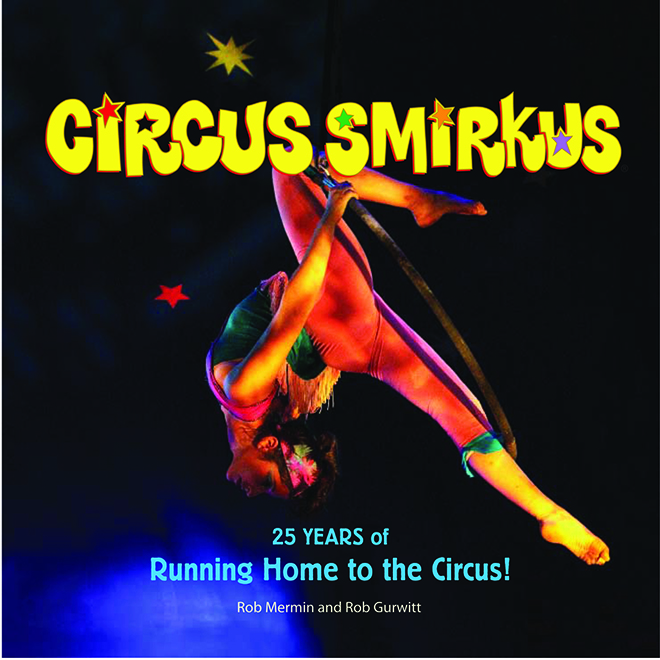In our first installment of the Rest of the Story, we go beyond the article with writer Rob Gurwitt. His recent article in Governing magazine has again focused a spotlight on Generation X and their potential impact on the way government does business. Whether you are a Boomer, Millennial, GenXer, or something in between, you can find a number of takeaways from Rob’s article and his responses to our questions. In our interview with Rob, he discusses the impetus for the article, reader feedback, Beavis and Butthead, and asks for your thoughts on civic engagement.
The Rest of the Story

Writer of Governing Magazine, How Generation X is Shaping Government
Vitals
Education: Swarthmore College
Experience: Governing Magazine, Congressional Quarterly, AARP Bulletin, The American Scholar, Mother Jones, Preservation, DoubleTake, Salon, Wilson Quarterly, Columbia Journalism Review, Hartford Courant, LA TImes, Philadelphia Inquirer, New York Times, Sacramento Bee
Stay connected: Blog, Email, and LinkedIn
Background Check
I’ve been writing since 1982, when I joined the politics section of the Congressional Quarterly Weekly Report and immediately got tossed onto redistricting stories–a sort of journalistic acid bath where any illusions about sweetness and light in politics get stripped away. My five years there turned out to be like a graduate education in American political nuance, studying the historical and cultural differences that make the politics of each state unique.
In 1987, I left CQ to travel in Southeast Asia, and on returning joined the staff of Governing, a magazine about state and local government. Over the years I wrote well over 200 articles for Governing, focusing on everything from urban development to civic participation to the uses and abuses of power to the impact of the changing media landscape.
I’ve spent my freelance life happily exploring the nooks and crannies of American community life. For DoubleTake magazine I wrote about the extraordinary USDA demographer Calvin Beale; renegade traffic engineer Walter Kulash; Laotian and Cambodian meat-cutting families in Garden City, Kansas; the unusual community saga of Tupelo, Mississippi; and the Vermont circus troupe, Circus Smirkus. I was a contributing writer at Mother Jones, and have written for Preservation, the Wilson Quarterly, the Columbia Journalism Review, Salon, AARP Bulletin and The American Scholar, and published op-ed pieces in The New York Times, the Los Angeles Times, and other newspapers. With the Duke University photographer Alex Harris, I documented efforts involving older American volunteers to improve community life around the U.S. These days, I’m writing for Boston, Stateline.organd Governing. My book on the 25-year history of Circus Smirkus, co-written with its founder, Rob Mermin, appeared in June, 2012.
Q & A

Your article on Gen X is one of the best we’ve read on the subject. Tell us what led you to write the article. Did you have any preconceived notions about the topic?
Thank you, that’s nice of you to say. I had a great time working on the article partly because I didn’t have any preconceived notions about it—so I learned a ton as I went along.
 The germ of the idea came from my editors at Governing, who were interested by reports they’d read about the impact of the Great Recession on GenXers. Each generation can claim to have taken it on the chin the last few years, but the numbers suggest that GenXers get to claim the Most Downtrodden mantle. However, as I started to talk to people – especially Neil Howe and Pete Peterson — about Xers’ characteristics as a generation, I realized that there was a much more intriguing story in how their key personality traits (impatience with rigid institutions, a profound affection for being heard) might be affecting the public sector. And that made me wonder whether this might be connected to the trend we’ve all seen toward promoting citizen engagement with local government. The conclusion I came to is that there really is a relationship between the movement of GenXers into mid-adulthood—both as private citizens and as public managers—and the way local governments are trying to broaden and open up their relationship with the people they serve.
The germ of the idea came from my editors at Governing, who were interested by reports they’d read about the impact of the Great Recession on GenXers. Each generation can claim to have taken it on the chin the last few years, but the numbers suggest that GenXers get to claim the Most Downtrodden mantle. However, as I started to talk to people – especially Neil Howe and Pete Peterson — about Xers’ characteristics as a generation, I realized that there was a much more intriguing story in how their key personality traits (impatience with rigid institutions, a profound affection for being heard) might be affecting the public sector. And that made me wonder whether this might be connected to the trend we’ve all seen toward promoting citizen engagement with local government. The conclusion I came to is that there really is a relationship between the movement of GenXers into mid-adulthood—both as private citizens and as public managers—and the way local governments are trying to broaden and open up their relationship with the people they serve.
Talk about the response to your article in Governing. What have been the positive comments? Negative?
 It’s interesting. There’s been a pretty decent social-media response, mostly in the form of tweets/retweets and Facebook recommendations, but not many actual comments. There’s a brief but quite thoughtful conversation in the “comments” section on Governing’s page, but that’s about it. No one emailing to tell me I’m an idiot. No one writing to say I’ve given them newfound self-respect. Though I do have to say that the tenor of some of the tweets suggests to me that deep down, GenXers believe everyone still thinks of them as the Beavis and Butthead generation, so they’re a little taken aback by respectful attention from a journalist.
It’s interesting. There’s been a pretty decent social-media response, mostly in the form of tweets/retweets and Facebook recommendations, but not many actual comments. There’s a brief but quite thoughtful conversation in the “comments” section on Governing’s page, but that’s about it. No one emailing to tell me I’m an idiot. No one writing to say I’ve given them newfound self-respect. Though I do have to say that the tenor of some of the tweets suggests to me that deep down, GenXers believe everyone still thinks of them as the Beavis and Butthead generation, so they’re a little taken aback by respectful attention from a journalist.
Based on what you learned about effective strategies used by Gen X and their organizations, give us three of the strategies that we should consider using in our organizations.
 I hate to say it, but the jury’s still out on just how effective the strategies I wrote about will turn out to be. Clearly, though, if we’re talking about civic engagement, they’re more effective than what’s come before. The approaches I find most compelling are:
I hate to say it, but the jury’s still out on just how effective the strategies I wrote about will turn out to be. Clearly, though, if we’re talking about civic engagement, they’re more effective than what’s come before. The approaches I find most compelling are:
- the push toward open data, which has the potential to enlist a lot of smart people in analyzing problems, building really useful apps that will make residents’ lives better, and applying their minds to resolving issues that bedevil our communities;
- the related belief—which GenXers and Millennials are much more comfortable with than Boomers—that done right, you really can find wisdom and expertise in the crowd;
- the creative use of social media tools to reach more people and find ways of allowing them to collaborate and ponder public issues together. I don’t think local governments have figured out yet what to do with all of these, let alone how to realize their full potential, but the fact that they’re experimenting with it all makes this a really interesting time in civic life.
What will local government look like in 2023?
My flip answer is, your guess is as good as mine. My more serious answer is that I’m kind of old-school on this. I’m comfortable telling you what appears to be going on right now; I’m a little less comfortable telling you where I think it’s headed in the near term; and I get downright twitchy when I’m asked to prognosticate a decade out. I’d like to think local government ten years from now will be much more adept not just at using the technology of the moment to do its work, but at figuring out quickly how this technology allows it to rethink entirely its ways of doing business. The one thing I think I can say for sure is that, no matter what it looks like, people will still criticize it for being clunkier than the private sector.
You named a few of them in your article but who are other “Gen Xers” that we’ll be hearing from in the coming year?
I don’t want to seem like I’m ducking your question, but I honestly don’t know. Mostly that’s because I haven’t started to tune into the 2014 elections yet – that’s where we’re going to see the biggest new cast of characters emerge. I don’t think there’s any question, though, that over the next few years the governors, mayors and emerging civic activists who push public life in new and unforeseen directions will mostly be GenXers.
How far ahead is the private sector in adapting a more technology, Gen X based approach?
 Not surprisingly, pretty far ahead. That’s because the private sector has been far quicker to a) make room for GenXers (and Millenials) to run companies or influence their decision-making; and b) recognize and understand the GenX and Millenial market. There’s no question that local government is miles ahead of where it was even five years ago, but in my reporting on this story I definitely heard some frustration from GenXers about how long Boomers are hanging on to positions at the top–and thus, presumably, stifling the innovations that Xers would like to pursue. Their time will come, however—and when it does, of course, they’ll find Millenials breathing down their necks and accusing them of reacting too slowly to the opportunities and challenges presented by the generation behind the Millenials.
Not surprisingly, pretty far ahead. That’s because the private sector has been far quicker to a) make room for GenXers (and Millenials) to run companies or influence their decision-making; and b) recognize and understand the GenX and Millenial market. There’s no question that local government is miles ahead of where it was even five years ago, but in my reporting on this story I definitely heard some frustration from GenXers about how long Boomers are hanging on to positions at the top–and thus, presumably, stifling the innovations that Xers would like to pursue. Their time will come, however—and when it does, of course, they’ll find Millenials breathing down their necks and accusing them of reacting too slowly to the opportunities and challenges presented by the generation behind the Millenials.
If you don’t mind us asking, what category do you fall into? Gen X? Gen Y? Other?
Should I be insulted that “Boomer” wasn’t one of your guesses? I’m sort of early late-wave – in other words, born a bit into the second half of the Baby Boom. It puts my cohort in an interesting position: when we were younger we looked up to the people who came before us, but now have a lot of sympathy and sneaking admiration for the people who came after us—partly, of course, because we’ve got younger siblings who are Xers.
ELGL is hosting an annual conference in October. From what you learned about Gen X, give us three topics or speakers we should consider adding to our lineup.
It’s a pretty rich vein. In response to the Governing story’s title (“How Generation X is Shaping Government”), Adrian Moore, the vice president of the Reason Foundation, tweeted, “Let’s hope it’s more than this.” I take that to mean that he’s hoping for much more dramatic changes than simply broadening citizen engagement. Finding a way to explore the strong limited-government strand that runs through GenXers would make for a great topic.
At the same time, of course, there are plenty of GenXers who see plenty of space for the public sector in their communities. So it would also be intriguing to look at how GenXers who are in government reconcile their institutional roles with generational characteristics like self-reliance, suspicion of big institutions and impatience with bureaucracy. Someone like Matt Bronson, the assistant city manager of San Mateo, CA, would be really good at that.
And then, there are some really nice inside-baseball topics that didn’t get into the story. How do GenXers work differently from Boomers as local government managers (their social and professional networks tend to be geographically much more far-flung—does that dilute their attention to local affairs, or does it allow them to expand the potential for thinking creatively about the problems they confront?) And what will GenXers be like as managers? Will they think institutionally about how to resolve problems, as Boomers did? Will they try to change their institutions from within, promoting more flexible working arrangements, more autonomy for junior staff, more merit-based union and civil-service systems? Or will they decide that the work-family balance is just too skewed and avoid becoming administrators altogether? Nadia Rubaii, at Binghamton University in Binghamton, NY, would be really interesting on this.
Several of the cities you mentioned are in California. Does geography play a part in cities that have adapted more of the Gen X style?
 In some ways, I think geography’s irrelevant. I haven’t gone systematically through MindMixer and Peak Democracy to see if the communities that use them skew regionally, but certainly there are places all over the country that are using them. On the other hand, you’d expect cities like Palo Alto and Austin to be at the vanguard of the Open Data movement.
In some ways, I think geography’s irrelevant. I haven’t gone systematically through MindMixer and Peak Democracy to see if the communities that use them skew regionally, but certainly there are places all over the country that are using them. On the other hand, you’d expect cities like Palo Alto and Austin to be at the vanguard of the Open Data movement.
What’s next for you?
I’m really interested in whether communities can actually figure out what to do with all the civic engagement they’re trying to encourage. If you’ve got any thoughts on that, let me know: [email protected]
Supplemental Reading





Leave a Reply
You must be logged in to post a comment.